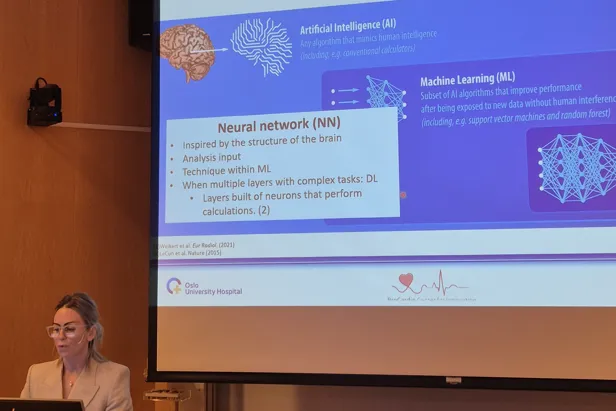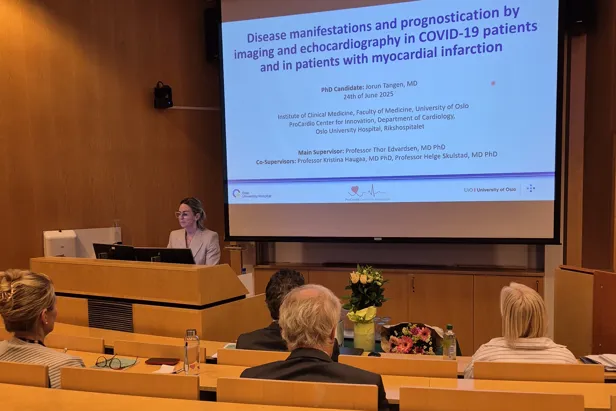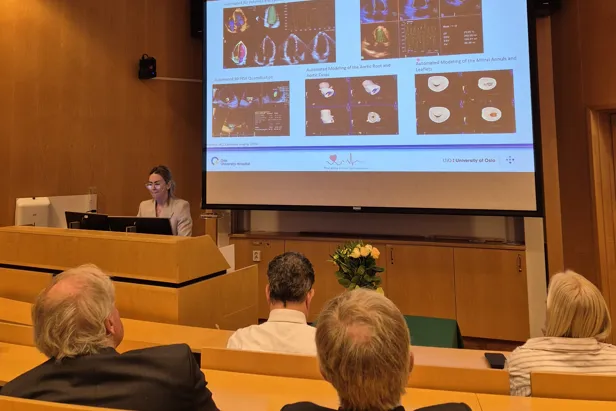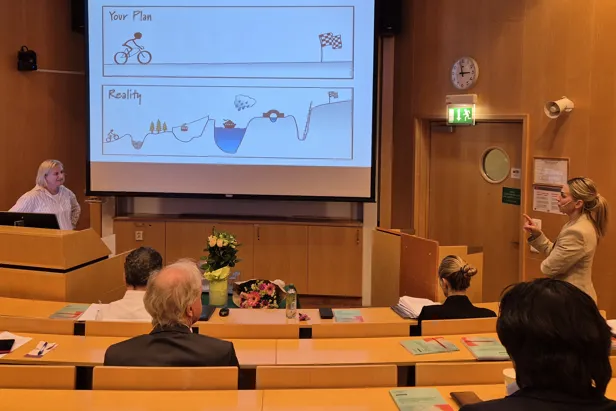Dissertation Jorun Tangen
On June 24th 2025, Jorun Tangen defended her thesis titled "Disease manifestations and prognostication by imaging and echocardiography in covid-19 patients and in patients with myocardial infarction" for the degree of Philosophiae Doctor at Institute of Clinical Medicine, University of Oslo (UiO). The trial lecture was titled "How will AI affect cardiac diagnostication in the future? Possibilities and pitfalls".

Photo: Private
Public defence: Jorun Tangen - Institute of Clinical Medicine
Adjudication committee
- First opponent: Assistant Professor Luna Gargani, University of Pisa, Italy
- Second opponent: Professor Mai Tone Lønnebakken, University of Bergen, Norway
- Third member and chair of the evaluation committee: Professor Dan Atar, University of Oslo
Chair of the Defence
- Associate Professor Lars Fjellbirkeland, University of Oslo
Supervisors
- Professor II Thor Edvardsen, University of Oslo
- Professor II Kristina Haugaa, University of Oslo
- Professor II Helge Skulstad, University of Oslo
Summary
Research has highlighted a concerning prevalence of cardiac abnormalities in hospitalized COVID-19 patients.
Acute myocardial infarction remains a significant global health challenge. An enlarged left atrium in patients with myocardial infarction has shown increased mortality risk in patients with myocardial infarction for two decades ago.
The aims of the thesis were to emphasize the crucial role of echocardiography in identifying conditions that can reveal cardiac damage after COVID-19 infection and myocardial infarction which can elevate the risk of adverse outcome by doing echocardiography of patients 3 months recovery of COVID-19 and before discharge of patients with acute myocardial infarction.
Improved echocardiographic method using speckle tracking, which is a method that visualizes how the heart muscle moves and deforms, the atrial function can be measured in different phases.
The heart function of hospitalized COVID-19 patients three months recovery was minimally affected
Despite advancements in treatment for patients with myocardial infarction over the past two decades an enlarged left atrium remains as a significant prognostic factor.
The residual phase where the atrium fills with blood was together with the size of the atrium significant predictors of adverse outcome in patients with myocardial infarction.
Overall, these studies show the importance of echocardiography as a tool for early detection of heart disease. This can provide physicians with the opportunity to initiate treatment and other measures that may reduce the risk of adverse events.









